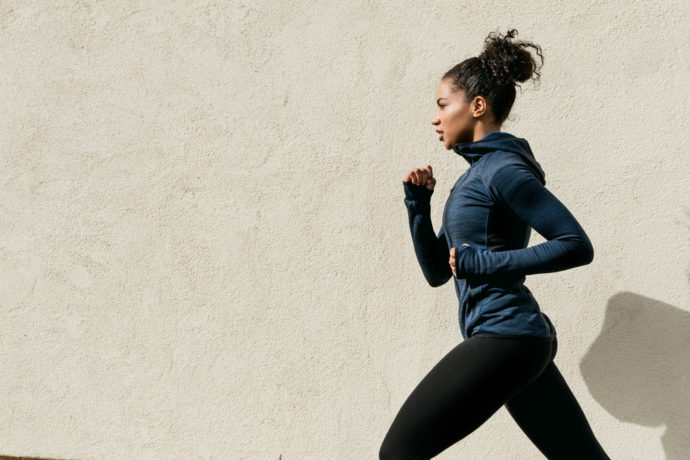We have so much to learn from the early chapters of Genesis about God, the world, and humanity. This is the first in a three-part series on what I’m learning from Genesis 1–3 about our bodies, creation, and gender.
Our bodies matter. In Genesis 1 and 2, we witness God the Creator molding and shaping and breathing God’s very breath of life into the physical bodies of Adam and Eve. God created them with thoughtfulness and care, each unique and beautiful in their own right. These living, breathing, moving, thinking conglomerations of organs, arteries, bones, and muscles are incredible works of creative genius. They are astonishing works of art and science that have captured the imaginations and stirred the wonder of humans ever since.
It didn’t take long for Eve and Adam’s lust for power, combined with serpent-induced skepticism, to compel their bodies to do the unthinkable thing—eat the forbidden fruit. Yet the ever-merciful God knew that the bodies of the people he created matter. In Genesis 3, despite the harsh reality of broken creation, God cared for the physical bodies of the humans God had lovingly formed. Before exiling Adam and Eve, God created protective clothing for their newly shame-filled bodies. This clothing was carefully constructed and far better than anything they had been able to make for themselves. Bodies matter.
We see the significance of bodies lots of other places in Scripture too. It’s flagrantly obvious in Jesus’s crucifixion and resurrection. Jesus’s journey to the cross was marked by physical torture, mockery, pain, and thirst. As he hung in a place of shame, his body exposed and weak, Jesus experienced the very worst that humanity had to offer. And, as he prepared to breathe his last breath, Jesus pled for the forgiveness of those who were inflicting his agony—figuratively and literally. Jesus’s body is significant in our understanding of the crucifixion. So much so that every single time we come to the Lord’s Table, we acknowledge that his body was broken and his blood poured out on our behalf.
But, as we love to say, that’s not the end of the story! When Jesus was raised from the dead, he was raised with a body—a real, living, breathing, physical body—a perfect body that couldn’t get sick or die. A body that could go through walls and transcend time and space to show up in different and unexpected places. Yet it was a physical body with skin and scars all the same. Bodies matter. If they didn’t, the resurrected Jesus would have appeared as a disembodied spirit, floating around like a ghost. But even before the resurrection, Jesus showed us that bodies matter. He spent much of his ministry healing physical bodies, not just caring for the souls of the people he was ministering to. He gave sight to the blind, mobility to the lame, relief to the hemorrhaging woman, and life to the dead. Physical healing matters because bodies matter.
This is not a conversation about size or shape or piercings or tattoos. This is a conversation about how we care for and utilize our bodies to the glory of God.
In our twenty-first-century lives, we continue to proclaim the merit of our bodies every time we pray and give praise for physical healing. We acclaim those in the medical profession who are called to give their lives to fostering healing in their patients—and rightly so. Similarly, offering food and shelter and warm coats are means of embodying Christ in the world. Each of these acts testifies to the fact that bodies matter. But this truth plays out in other ways too. God makes our bodies good and pleasing and beautiful. They continue to be some of God’s best creative works in the world. This is not a conversation about size or shape or piercings or tattoos. This is a conversation about how we care for and utilize our bodies to the glory of God.
Our Food Matters
What we feed (or don’t feed) our bodies matters. If I feed my body absolute rubbish made from processed ingredients that God didn’t even create as food in the first place, I am essentially saying, “My body and what I use to fuel it don’t matter. My body is not important enough to take the time or care involved in sustaining it well.” I wonder if that feels like a slap in the face to God, who created nourishing, delicious food that didn’t need processing or packaging? There’s plenty of scientific research that tells us that what we use as energy for our bodies matters. People who are intentional and thoughtful about the food and beverages they consume tend to live longer, enjoy better health, and experience greater productivity. That’s as true for pastors as it is for anyone else. I want to serve God to the very best of my ability. In turn, I have to purposefully give my body the very best fuel I can. Poor imitation food products just won’t cut it.
Our Movement Matters
Movement matters. Our bodies were made to move. When I imagine life in Eden, I envision God’s delight at seeing the bodies God created move. All of the flying and hopping and running and crawling going on among God’s creatures must have brought great delight. I imagine it was no different with the humans who crouched to observe tiny flowers, climbed a tree to peek in a bird’s nest, took a swim in the river of life, and walked with God in the cool of the evening. Moving our bodies often and in a variety of ways is pleasing to God. It’s what we were created to do! Working out helps me appreciate the body God has given me. It’s made even richer if my physical activity is an outdoor activity, where I can enjoy the beauty of creation as well. Movement helps my body be its best. It’s also an act of worship and gratitude to God.
Our Sexual Activity Matters
There are so many facets of this topic worth exploring, but when I had this conversation with a college student recently, I knew I would be remiss if I did not include the fact that our bodies matter when it comes to sex. If I have sex purely for my own momentary physical pleasure, I am saying, “What I do with my body only matters if it feels good right now. And how my body affects you doesn’t matter.” Using our bodies for instant gratification leads to brokenness and destruction. This is true for the deepest parts of ourselves, our relationships, and those from whom we seek to gain momentary pleasure. As Christians, we don’t have the prerogative to use our bodies to the detriment of another, ourselves, or our relationships—future or present. Yet there’s a beautiful alternative. Using our bodies with self-control and according to the sacred guidelines designed by God is a means of bringing about God’s kingdom even now.
My body is one of the best tools and gifts God has given me. It allows me to move and work and teach and worship and care for others. It allows me to hug my family and climb to the top of a mountain to soak in the views and splash through the ocean waves. The way I care for my body and the bodies of others is an act of gratitude and worship to God.
We believe in a bodily resurrection. With great anticipation, I await day when all the sickness, pain, and death of our broken physical bodies is replaced by wholeness and strength and life. But if we’re resurrection people—people who are about the work of bringing about God’s kingdom even now—then we get to live like our bodies matter right now. Because they do! As bodily beings made in the image of God, it is both an act of worship and our God-given responsibility to care for and use our bodies well.







2 Comments
Maurice Carey
I really liked this writing, I was put into the light of the Lord! I was challenged to take a look at myself.